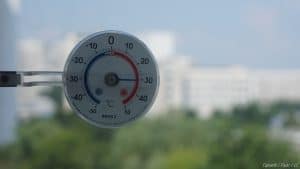
It’s not a secret that moving to another home is a rather daunting task. That’s right – there are many good reasons why most people fear the prospect of having to move from one home to another.
In a nutshell, what makes moving so hard is the fact that it often proves to be an extremely exhausting experience, both mentally and physically.
The degree of complete and utter exhaustion a person can feel after moving to a new home is believed to be unique to the relocation process.
But why is moving so tiring?
What exactly makes moving so exhausting at the end of the day?
Below we will explain in detail why moving is so tiring for your body and your mind.
The idea, of course, is that once you understand the major reasons for your physical and mental exhaustion during or after the move, you may be able to do something about it so that you make your move less tiring and less stressful.
Here’s why moving is so exhausting:
Moving is physically demanding
There’s no doubt that the process of moving house is rather physically demanding. When you think of moving, the very first image in your head is likely to be that of heavy furniture pieces being lifted, carried around, and taken out of the house to be loaded into the moving vehicle.
The second picture in your mind will probably be of scores and scores of cardboard boxes – large, medium, and small, waiting patiently to be taken out and loaded safely as well.
However, the relocation process is much more than simply moving furniture and boxes, and there are a myriad of strenuous things to be done even before Moving day comes around.
Don’t get tired! How much does moving state-to-state cost? Watch to find out!
Scores of things to do as part of the preparation
Moving can become overwhelming pretty quickly when you try to organize everything by yourself. Most if not all of the move-related tasks that you have to take care of before the move-out day will require (great) effort and energy from you.
Even seemingly simple tasks such as changing your address are likely to tire you out, especially if you choose to change your postal address in person – that is, to visit the nearest post office and initiate the Change of Address (COD) Procedure.
You will also need to visit your family physician in order to obtain the necessary documents (medical records) for registering with a new doctor in the destination place. What’s more, if you’re moving with any pets, it’s recommended that you take them to the vet’s office for a thorough checkup and possible advice on how your animal friends can handle better the stress of moving to a new home.
The truth is that the super-busy period of preparing for a move will include too many energy-draining tasks that will slowly but surely lead to physical fatigue.
Moving Checklist: The Greatest Moving Checklist of All Time
Packing for a move

Packing for a move will be the single most energy-consuming task of them all.
Basically, packing should start as soon the house move is confirmed and will continue all the way until Moving day itself. This means that you’ll be pretty preoccupied with packing every single day while you’re getting ready to move out.
Packing is an extremely exhausting job not only because it lasts for days and days on end, but also because it’s just hard work in itself.
First of all, you will have to sort out all the items you own in order to figure out which ones you will pack up and move with you, and which ones you will leave behind. The sorting process is best done with the help of a detailed home inventory.
Secondly, the process of packing your belongings for transport is definitely going t to make you tired, especially when you have to protect each fragile item individually using padding materials such as wrapping paper and bubble wrap.
Packing Timeline: What to Pack When for Moving
Moving day
Unless you have done yourself a favor by hiring professional movers to protect and transport your possessions, moving day will be the most exhausting period you’ll need to survive, period.
Moving countless packing boxes filled to the brim with various stuff, as well as carrying large and heavy furniture pieces out of your home and loading those into the moving truck will be a very taxing job for you. Asking friends to give you a hand is always a good move, but you’re more than likely to exert and exhaust yourself even when you have friendly helpers with you.
Bear in mind that even if you’ve made up your mind not to move any furniture with you, the mere task of taking all those boxes out of the place to be loaded safely, often along flights of starts, will tire you out long before you’re done with the task.
What to Do on Moving Day: Moving Day Checklist
Post-move tasks
Unfortunately, the physically demanding work won’t end when you move into the new home. In most cases, you won’t have enough time to recover from the fatigue you must be feeling by that point.
You will most likely give yourself one day to rest a bit from the inevitable moving day exhaustion. However, the next task is unpacking which, similar to packing, can take many days to complete. And what about the other post-relocation tasks that you will need to take care of, often within specific deadlines too?
To make things even worse, you may have to go to work shortly after the move is complete and that’s definitely not something that your body and mind will enjoy too much.
21 Things to Do After Moving Into a New House
Why is moving so hard? Now you know, at least when it comes to the physical side of moving house.






nice